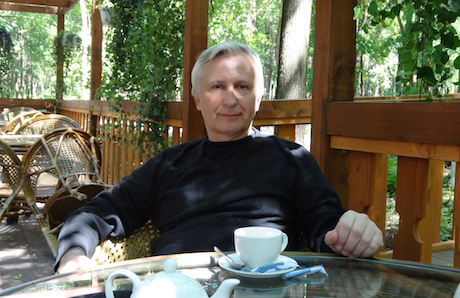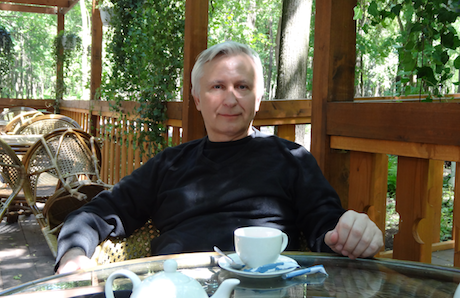
We are accustomed to use the term “strategic communication” to describe one of the essential instruments of national development but it also seems appropriate to some extent in the analysis of the policy of different blocks, alliances and associations. BRICS is not an exception. The group of five countries, which are distinguished by their large economies and significant influence on regional and global affairs, has its strategic communication on rise. Strategic communication of BRICS countries is the projecting of certain common fundamental values, interests and goals into the conscience of domestic and foreign audiences through different forms of social activity with professional communication support. In other words strategic communication is a synchronization of deeds, words and images with the primary importance of deeds. It is clear that such synchronization more and more take place in BRICS countries today; reflecting the dynamics of the unique national symbiosis of the old and the new, of the local and the adopted aspects of forms and methods of influencing public consciousness.
BRICS nations develop bilateral relations on the basis of non-interference, equality, and mutual benefit (win-win). The group is not able to forward joint messages in all spheres of mutual interest, because it is not a single state and not a military block with an evident leader and practically one point of view. But BRICS produce in the time of rising global tension deeds, words and images of peaceful collaboration of five countries with different civilization roots. One can see a spirit of respect and peer learning in each member’s quite different development model.
Their message to other nations was initially in the economic sphere. The core focus of the first summit of BRICS in 2009 was in the current global economic situation and the measures to overcome the global crisis. The agenda of BRICS meetings has considerably widened over the years and include different global topical issues: from international terrorism to climate change, food and energy security.
Now according the Russian Foreign Ministry transforming the BRICS assembly of Brazil, Russia, India, China and South Africa into “a full-scale mechanism of strategic interaction on key issues of global policy and economics” is a “top priority” for Russia’s presidency in this organization, which is expected to culminate soon at a summit in the Russian city of Ufa. The main goal is to launch the group’s New Development Bank and currency reserve pool, to accept Strategy for Economic Cooperation of the BRICS until 2020. According to the secretary (economic relations) Sujata Mehta from the ministry of external affairs of India, NDB will be an “alternative” to institutions like the International Monetary Fund and the World Bank that were born from a 1944 conference in Bretton Woods.
Global development inevitably and more and more quickly brings us in a radically new reality with greater risks but at the same time with great opportunities. And sure is necessary to escape a new epoch of imperialist rivalry like before World War only between broader circle of mighty states (which is quite possible of course). A real alternative is to find new solutions based on the democratic principles and in the interests of the mankind. This is a strategic message of any organization now pretending for global influence without global war to achieve it, this is a maturity test for any international group or association either BRICS or European Union or any else.
And new ways of strategic communication of BRICS are in development. The meeting of the BRICS Civil Forum in Moscow, between June 29 and July 1, was conducted for the first time in the history of the group. The Civic BRICS aims to ensure a dialogue between the representatives of the civil society not only of the BRICS Member States, but as well the guest countries. The leaders of delegations at the Forum highlighted that civil societies in the BRICS countries are fundamentally different but these differences help to make contribution to the overall development.
Of course it is easy to notice some paradoxes and weaknesses in strategic communication of BRICS members. For example Russia and China rapidly develop their relations in different spheres but cultural exchange is rather limited until now. Being a strategic partner of Russia China has a very tiny presence on Russia’s TV or fiction books market.
BRICS countries occupy 30% of the global territory. They are home to 45% of the world’s population. BRICS countries have increased their share of global GDP threefold in the past 15 years. In PPP terms, it is about 30% of world’s GDP at the moment. The contribution to global economic growth over the last decade has reached 50%, which makes this group of states the leading power in global economic development. These and similar data find the rising place in the minds of people because it is the objective reality. The objective deeds and tendencies are boosted by BRICS information services more and more global and effective now and also… by the titanic long-term analytical and media efforts of the West wants to gain profits on the emerging markets (even the term “BRIC” was coined in 2001 by then-chairman of Goldman Sachs Asset Management Jim O’Neill). But other countries of course have their own aims and interests not obligatory coincident with the interests of BRICS members. And rare presence of BRICS themes on the mainstream media channels of the group members (except the occasion of BRICS forums) is not a good factor for mutual understanding and approaching of rather different countries.
New level of coordination of strategic communication of BRICS countries is essential based on pragmatic understanding of their big differences…as an instrument of achieving some joint long-term goals.
Strategic communication of BRICS transforms from myth to reality only with deeds and only in this way in has its future. Per aspera ad astra…
*Evgeny Pashentsev
A professor at Lomonosov Moscow State University and Moscow Teacher’s Training University. Director of the International Centre for Social and Political Studies and Consulting. Co-Founder and Co-coordinator, together with Eurispes, of the international Network EU-Russia Communication Management (EU-RU-CM). A member of the advisory board at Comunicar Journal (Spain).





















